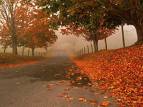The collage painting by Claudia Dose represents the 36 tatvaas of Kashmir Saivism. One can clearly see the influence of the great Kashmiri Master of Neo-tantric art Ghulam Rasool Santosh.
Not
many people in Kashmir would have known the name, Ali Mardan Khan, had it not
been for the small area in downtown Srinagar that is named after this Afghan
Governor. Despite this he would have remained a name in the books of history
like many others rulers but for the verses that immortalized him in Kashmiri
Folklore, despite him not being a Kashmiri. The verses were written at a time
which was clearly our dark ages. It was forbidden for non Muslims (read Hindus)
to read their scriptures or practice their religion openly. I am not sure if it
is entirely true but it is widely believed that the Hindus were ordered not to
recite Sanskrit verses thus forcing them to make Persian as their language of
connect to their deities. Whatever may be the historical accuracy of this
“order”, to this day we recite Bhakti verses in Persian and there is one in
particular which I remember and goes something like this:
Chakreshwari Hajat rawa,Sajath gada ra
padshah
Vaah Vaah chi Lakshmi Thapna,shree sharika
devi nama
That
Goddess Chakreshwari, who can turn a beggar into a king
She
who listens to our prayers and answers them
I
salute, thee, Seat of Lakshmi, who incarnates in the form of Sharika (in
Kashmir)
To
cut a long story short, one evening Ali Mardan had a vision which took the shape
of a beautiful Persian Devotional Poem .Most of us keep rendering them at
religious and social festivals with fervor & devotion. Thanks to the oral
tradition that has helped carry this poem in its totality to us. It also is a
commonplace in most of our Leela* renditions. I am using the version published
in Sahaj Kosam (compiled by Moti Lal Saqi) for Mast Bab Ashram. It is slightly
different from the version (the last verse differs) that comes down to us via
the oral route .I make an attempt to transliterate the verses.
Huma Asli Maheshwar Bhood,Shab Shahi ki Man
Deedam
Ghazanfar Charma-e-barbood,Shab Shahi Ki Man
Deedam.
It
was Shiva, the real God, the King I saw that night
Adorned
was his body with Lion Skin, the King I saw that night
Ze
Basmash Jam-e-bar-tan,Zunar-ish mar-e-bar garden
Ravanish Gang-e-bar sarbood,Shab Shahi…….
Besmeared
with ash, Instead of the scared thread a snake coiled around his neck
Un
ebbed flow the Ganga from his locks, the King I saw that night
Sah Chashmash bar-jabee-daarad,Zi mahro
maaha roshan tar
Se Karan Daste-Bastah Bood,Shab Shahi…….**
Brighter
than sun and moon, shone his three eyes
In
Salutations to him stood Vishnu, Brahma and Shiva (the 3 causes of the
universe), the King……….
**This
verse needs a little explanation, the three reasons though commonly understood
as Shiva,Vishnu and Mahesh are seen in a different way by the Saivities of
Kashmir. The Will (Iccha Shakti of Citi-Supreme Consciousness) in itself
has the triple process of manifesting, maintaining and dissolving the universe.
So the three reasons could also be understood as attainment of Swantraya (Freedom from Bondage of
Ignorance)
Be Dastash AAb-e-Kaunsar,Ve bekh Nakoosay
Nilofar
Hilalash Taj Bar Sar Bood,Shab Shahi…….
With
a conch of Lotus Shoot in one hand and the pitcher of nectar in another
The
Crescent Moon embellished his forehead, the King……….……
Uma az soi-chip-binger, Zi Sad Khursheed
Taban-tar
Savare Kulb-e-nar bood,Shab Shahi…….
Uma
on his left, effulgent, like a thousand suns
Beseated
on Nandi, I saw the king that night……
Ajab Sanyasa deedam,Namo Narayanay Guftam
Be Khakhay Paye Bosidam,Shab Shahi….
Wonderstruck
I said Namo Narayan, incredible sage he was
In
reverence, I bowed to touch the specks of dust at his feet, the King……….
Nighahay bar mane Miskeen,Namud-e-az- chasme
taaban-tar
Makanash La maaken tar bood,Shab Shahi……
With
his divine grace (Anugraha) ,he
showered his radiance
Immersed
me in the universe of consciousness, the King……….
Manam Mardan Ali
Khanam,Ghulam-e-Shahe-Shahanam
Ajab Israr Main Beenam,Shab Shahi…….
I
Ali Mardan Khan who is the servant of the king of the kings
Is
witness to a mystic experience, the King……….
Another
version of the last verse is Manam Mardan
Musalmanam,Ali Khanam Namee Dhanam,which means
I Ali Mardan a devout Muslim , who owes every
breath to Ali (the Caliph).
--------------------------------------------------------------------------------------------------------------------------------------
This
poem is also a reiteration of the Kashmiri Saivate standpoint of the world
being real as against the Vedantic concept of it being Maya (unreal).That the poet’s vision is not of a formless deity but
one that he describes in great detail with its physical attributes and
iconography reinforces the Kashmiri Saiva thought of the creation being real
when Unmesh (broadly translated as
opening of eye/thought )happens.
Note:
I would welcome improvements in
translation. Persian is not a language I am well versed with. I thank my friend
Geetika, without her help this translation would not have been possible.
*Leela is a Kashmiri Devotional Poem.










No comments:
Post a Comment